Biological Resources Working Group
The Biological Resources Working Group is a group established by ECMC to develop recommendations on the regulation and protection of invertebrates and rare plants.
ECMC selected 15 experts in policy, science and industry to participate in discussions over the course of 12 months before presenting recommendations to the ECMC Commission.
About Biological Resources
The work to protect biological resources focuses on Colorado’s pollinators and rare native plants. As a clearer understanding of the importance of these resources to Colorado’s ecosystems has emerged, in large part thanks to advocacy from members of the public, the effort to regulate their conservation and protection has gained momentum in the past decade.
Biological Resources were first named by ECMC in an important piece of legislation from 2019, sometimes known as the “Mission Change” (SB 19-181). Part of the new mission directed the Commission to “protect against adverse environmental impacts on any air, water, soil or biological resources.”
Biological Resources were later officially defined by the Commission as “all invertebrates and rare plants, and their aquatic and terrestrial habitats.”
Invertebrates are a broad category of species that lack a vertebral column or backbone, including familiar species such as butterflies, bumblebees and other insects. Rare plants are broadly defined in statute as native plants at risk of extinction due to various factors.
Additional Context
The Commission first convened a Biological Resources Working Group in 2020, immediately following the “Mission Change” rulemaking. The group provided the Commission with several key recommendations, including to decide on an agreed definition, establish a regulatory authority, and develop data resources.
Following the first working group, in 2022, the Colorado General Assembly directed the Department of Natural Resources (DNR) to commission a study of Colorado’s native pollinators. The report recognized native pollinating insects as important contributors to Colorado’s agriculture and economy, and it provided a series of recommended conservation practices.
One of the report's recommended actions was for a state agency to assume statutory authority over pollinators, addressing a gap in policy. Following additional legislation, Colorado Parks and Wildlife assumed additional authority over biological resources in 2024, allowing the agency to study and conserve biological resources through voluntary programs.
Following these developments, the Commission asked staff to convene a second working group to determine the necessity and feasibility of a new set of rules related to Biological Resources. The group includes representatives from government agencies like ECMC and CPW, as well as individuals with expertise on biological resources from non-government organizations (NGOs) like Denver Botanic Gardens, Xerces Society, Colorado Natural Heritage Program and Western Resource Advocates. Other representatives include local government officials and industry leaders. Full biographies of all members can be found below.
Additional information about the working group’s progress and opportunities for public involvement will be published on this webpage, social media, and ECMC’s news and alerts as it becomes available.
Resources
- SB 19-181 (Protect Public Welfare Oil And Gas Operations | Mission Change)
- Biological Resources Working Group 1.0 Recommendations
- SB 22-199 (Native Pollinating Insects Protection Study)
- HB 24-1117 (Invertebrates & Rare Plants Parks & Wildlife Commission)
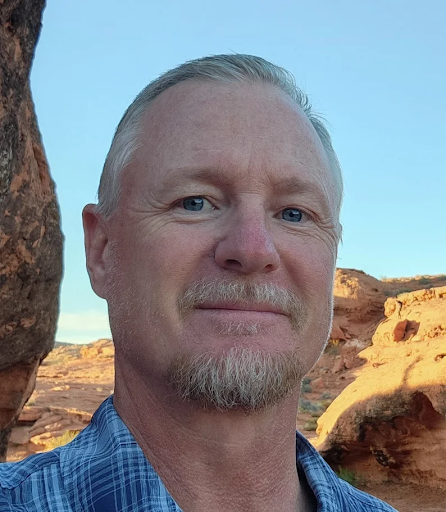
Brett Ackerman was appointed to the Energy and Carbon Management Commission by Governor Polis in July 2022. He is serving in the capacity of a member with formal training or substantial experience in environmental protection, wildlife protection, or reclamation for a term expiring July 1, 2026. Previous to his appointment, Ackerman spent over 20 years with Colorado Parks & Wildlife in various positions, most recently as CPW’s Southeast Region Manager and a member of the agency’s executive leadership team. Over the past two decades he has helped formulate, guide and implement many of Colorado’s natural resource conservation policies and land use practices, including leading CPW’s engagement in the SB19-181 ECMC rulemaking process. While managing CPW’s complex regulatory program, Ackerman conducted numerous rulemaking and policy processes throughout the state. He has extensive experience in coordinating and negotiating with legislators, commissions, agency personnel, local governments, private entities and the public on issues of natural resource management. Ackerman has served on a variety of boards, including an appointment by Governor Polis to Colorado’s Habitat Stamp Committee and an appointment by the US Secretary of the Interior to the Bureau of Land Management’s Rocky Mountain Resource Advisory Council. Ackerman holds a Bachelor of Science in Wildlife and Range Resources from Brigham Young University and a Master of Public Administration with a concentration in environmental policy, management and law from the University of Colorado, Denver.
 David Anderson was born in Aurora, CO. He studied biology at CU in Boulder, and studied botany in graduate school at the University of Washington. He worked on arctic and alpine plants through that part of his life, doing field work in Alaska and arctic Canada. After that he was a middle school science teacher in the Peace Corps in the Solomon Islands from 1996-1998. Dave’s career at the Colorado Natural Heritage Program started in 1999 as an assistant botanist. In 2004 he became the team leader of the botany team. As a botanist at CNHP Dave wrote grants, did field research on rare plants throughout Colorado (including a monitoring project on the Chapin Mesa Milkvetch that continues today!), started a weed mapping and monitoring project at the US Air Force Academy that also continues now, and authored 40 Technical Conservation Assessments of rare plants for the USFS. In 2008 Dave became CNHP’s director. During his leadership CNHP has launched CODEX, launched the Statewide Natural Heritage Survey, and grown to a staff of 50 professionals. He loves his job and his coworkers, and is dedicated to CNHP's work of supporting conservation efforts collaboratively using the best possible data and science.
David Anderson was born in Aurora, CO. He studied biology at CU in Boulder, and studied botany in graduate school at the University of Washington. He worked on arctic and alpine plants through that part of his life, doing field work in Alaska and arctic Canada. After that he was a middle school science teacher in the Peace Corps in the Solomon Islands from 1996-1998. Dave’s career at the Colorado Natural Heritage Program started in 1999 as an assistant botanist. In 2004 he became the team leader of the botany team. As a botanist at CNHP Dave wrote grants, did field research on rare plants throughout Colorado (including a monitoring project on the Chapin Mesa Milkvetch that continues today!), started a weed mapping and monitoring project at the US Air Force Academy that also continues now, and authored 40 Technical Conservation Assessments of rare plants for the USFS. In 2008 Dave became CNHP’s director. During his leadership CNHP has launched CODEX, launched the Statewide Natural Heritage Survey, and grown to a staff of 50 professionals. He loves his job and his coworkers, and is dedicated to CNHP's work of supporting conservation efforts collaboratively using the best possible data and science.
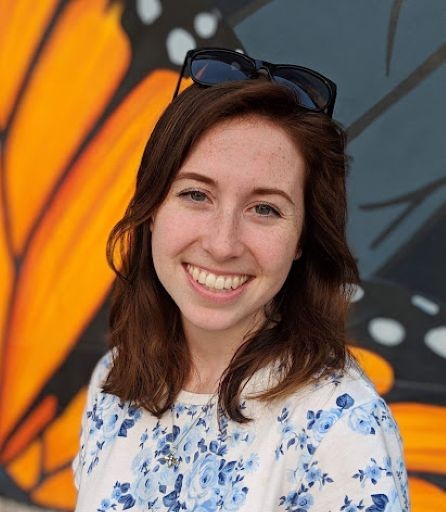
Dr. Hayley Schroeder is the Invertebrate and Rare Plant Program Supervisor at CPW. She received her BS in Ecology and Entomology from the University of Georgia and completed her PhD in Entomology at Cornell University. She has investigated the consequences of non-native milkweed on monarch butterfly disease dynamics and migration, how landscape mediated changes in insect populations affect wild plant evolution, and whether landscape level predictors can be used to evaluate crop risk to reduce pesticide reliance. Now at CPW, Hayley hopes to build a collaborative and inclusive program to address the multifaceted and interdependent threats facing Colorado’s invertebrates.
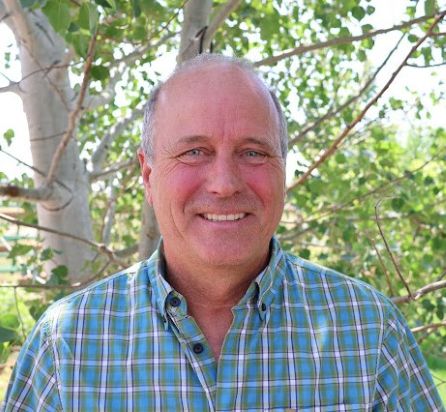
Steve Armstead is a pollinator Conservation Specialist for the Xerces Society for Invertebrate Conservation working in Colorado. His work focuses on efforts to manage and create high quality, connected, and climate-resilient pollinator habitat. Steve has been collaborating with local communities, land managers, community organizations, and other pollinator conservation organizations to explore ways to expand and leverage support for pollinator conservation throughout the state. He has over three decades of experience working in natural lands management, environmental planning, and community engagement. Steve holds a Master’s Degree from the University of Colorado where he studied and surveyed butterflies and he’s remained an active butterfly enthusiast. Steve was a co-author of the Colorado Native Pollinating Insects Health Study for the Department of Natural Resources, leading Xerces’ assessment and development of best management practices.
Tina Booton received her BS in Animal Science in 1995 and her Masters in Agriculture in 1996, both from CSU. In 1996 through 1999 she worked as an Extension Agent and Watershed Coordinator in South Dakota. In 2000 she returned to Colorado and started working in the weed program in Weld County seeking landowner compliance. In 2005, Tina became the Supervisor of the program and has held that position since then.
Tina continues to make enhancements to the program with continuing education and by researching new opportunities and options to address noxious weeds while protecting the native ecosystem. Tina is a Native Plant Master. Currently Tina holds her FAA part 107 certificate for flying Unmanned Aircraft Systems (UAS). With this certificate Tina is working to build a program in Weld County for using UAS’s to conduct inspections, surveying, and to make herbicide applications.
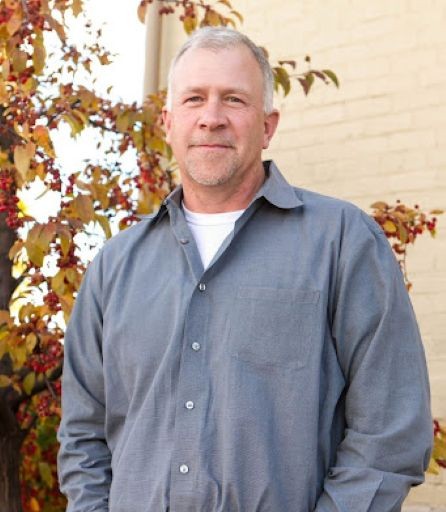
Chris Clark is based out of our Grand Junction Field Office and manages all facets of our Piceance Field Operation inclusive of all field operations personnel, multiple operational areas with upwards of 1,500 wells and growing, the operation of over 400 miles of water and gas gathering pipelines, water handling and treatment facilities along with gas compression facilities having wells in excess of 50,000Hp of compression and electrical generation to deliver nearly 50 billion cubic feet of clean burning natural gas per year.
Chris has over 30 years of oil and gas experience primarily in the Piceance Basin, with experience in upstream, midstream and gas processing. Chris began his career in 1990 in Prudhoe Bay, Alaska with Halliburton Energy Services. In the mid 90’s he transferred back to Colorado where he worked for Wesfrac, Inc., Plains Exploration and Production, Chesapeake Midstream (Haynesville Shale) and Occidental Petroleum (OXY) where he has most recently worked many of the current Laramie assets since 2005.
Chris is well rooted in Western Colorado oil and gas being a 4th generation Western Colorado native. Chris studied Biology at the University of Alaska and Colorado Mesa University, graduating with a B.S in Biological Sciences. In addition to his current role with Laramie Energy, Chris was the former President of West Slope Colorado Oil and Gas Association (WSCOGA) and has been an Executive Board member of the organization for the past 10 years.
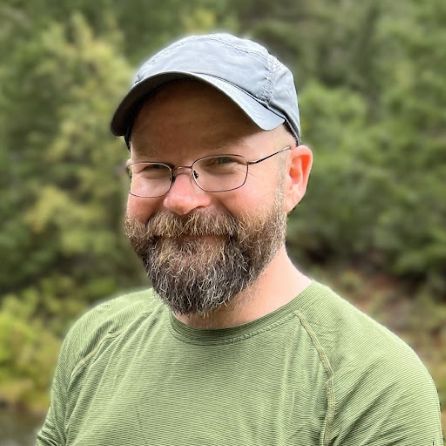
Dr. Adrian Carper is the Pollinator Conservation Program Manager for Colorado Parks and Wildlife, as well as an Assistant Professor Adjunct in the Department of Ecology and Evolutionary Biology, and Entomology Curator Adjoint in the Museum of Natural History at the University of Colorado Boulder. He has studied pollinators and other invertebrates for over 20 years, holds a BS in Fisheries and Wildlife Science from North Carolina State University and a PhD in Ecology and Evolutionary Biology from Dartmouth College. His research has spanned ecological and immunological research on butterflies, applied ecological research on native bees, and basic inventorying for pollinating insects across the state and country. His interests in pollinator conservation culminated in leading the DNR’s Native Pollinating Insect Health Study, where he summarized over a century of research on pollinators here in Colorado, and collaboratively outlined future priorities for pollinator conservation. In his new role with Colorado Parks and Wildlife, he will develop and lead the new Pollinator Conservation Program to better conserve and manage our state’s most imperiled pollinators and other invertebrates.
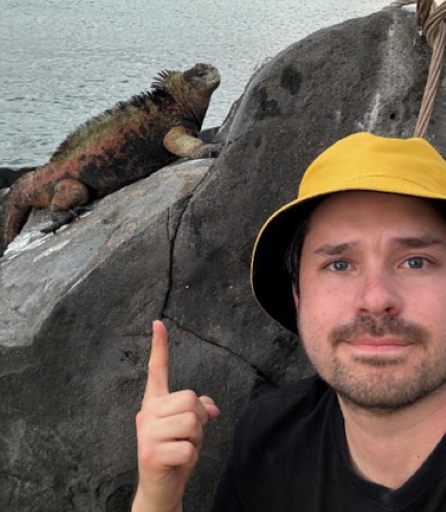
Francisco Garcia Bulle Bueno is the Director of Research and Conservation at Butterfly Pavilion. As a bee specialist, his PhD research advanced understanding of stingless bee queen development, colony dynamics, and pollination, resulting in over five peer-reviewed publications that are shaping meliponiculture (stingless bee keeping) and pollinator conservation. He leads national and international projects, from native bee surveys and firefly monitoring in Colorado to honeybee-based elephant deterrents in Tanzania, stingless bee management and conservation in the Ecuadorian Amazon, and butterfly conservation in Mongolia. Passionate about science communication, Francisco has extensive experience designing environmental education programs that foster community engagement. He excels at building strong, cross-cultural collaborations with international teams, including Indigenous groups, researchers, and conservation partners, and has a strong track record of securing grants and funding. His ability to align diverse stakeholders around shared goals ensures that projects are impactful, inclusive, and sustainable.
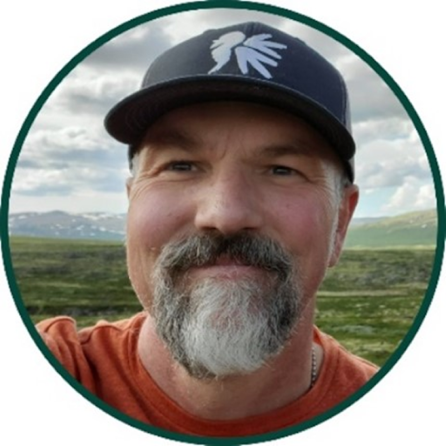
Jon Holst is a Senior Policy Advisor with Western Resource Advocates (WRA). Jon spent 14 years working as an Energy Liaison for Colorado Parks and Wildlife (CPW) where he helped shape the state’s approach to regulating energy and other types of land use development. He was on a team tasked with implementing the state’s initial attempts to regulate the impacts to wildlife from oil and gas development following passage of the Colorado Habitat Stewardship Act of 2007. In 2019, after over a decade of experience implementing that legislation, he was fortunate to have the opportunity to help rewrite the state’s oil and gas regulations to better address the needs of wildlife following the passage of SB 19-181. At WRA, Jon is applying his experience regulating oil and gas to inform strategies to minimize and mitigate the impacts of renewable energy development. Jon holds a Bachelor of Science in Biological Science and a Master of Science in Wildlife Biology from Colorado State University, and a Juris Doctorate from the University of Colorado School of Law. Jon grew up and still lives in rural Colorado, and he is an avid hunter and angler.
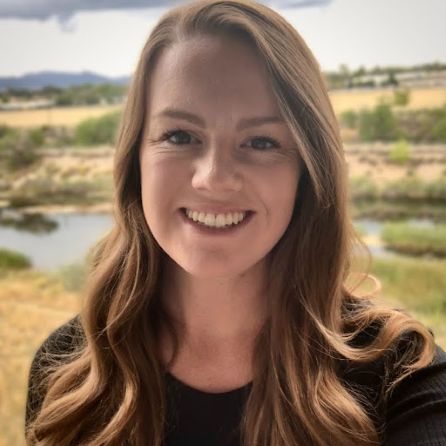
Lilah Huning: With a degree in Ecology, Behavior, and Evolution, Lilah has built a diverse career dedicated to natural resource management, education, and conservation. Her experience spans academic research, federal and state wildlife agencies—including the U.S. Fish and Wildlife Service and Colorado Parks and Wildlife—and environmental consulting. Currently serving as the Natural Resource Specialist for Civitas Resources, she brings a strong passion for working collaboratively to find balanced solutions that meet both energy needs and conservation goals.
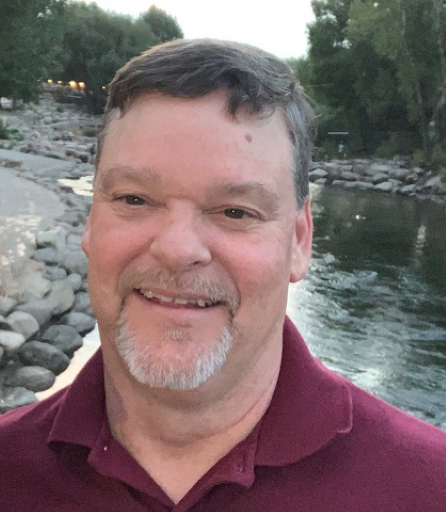
Michael Keller is an Environmental Specialist at Chevron USA. He oversees the Colorado Development Team, which is responsible for identifying and protecting wildlife habitat, and managing permits related to development activities that may affect wildlife, sensitive species, sensitive plant habitats, and wetlands/WOTUS areas throughout Chevron’s development lifecycle. This includes Greenfield development, production operations, and decommissioning activities such as well plugging, facility removal, remediation, and final reclamation. As Lead Specialist, Michael coordinates consultation efforts with State (ECMC/CPW/CDPHE), Federal (BLM/USFS/USACE), County (Weld, Garfield, Adams) and Local Government (municipalities) Agencies in support of Colorado development activities. He also provides hearing testimony for environmental project elements and habitat mitigation efforts at the State, County and Local government level Oil and Gas Development hearings, detailing Chevron’s innovative approach to wildlife habitat management.
Mr. Keller served as Co-Developer of Chevron’s Comprehensive Wildlife Plan (CWP), overseeing the funding and implementation of an independent conservation initiative tailored to the DJ Basin. Key components of this program include a Big-Game Collaring Program conducted in collaboration with Colorado Parks and Wildlife, a Native Seed Program aimed at reintroducing large-scale Colorado native plants with enhanced pollinator habitats for oil and gas reclamation activities, financial support for CSU’s Colorado Data Explorer environmental database (CODEX), sponsorship of a Chevron Fellows program at CSU focusing on the Native Seed Program, as well as the acquisition and protection of lands under the Conservation Easement Offset Program. All efforts are undertaken voluntarily to responsibly balance Chevron’s development activities within Colorado. Chevron’s Wildlife Program has been recognized by ECMC Commissioners, calling the CWP initiative transformative and industry leading. Mr. Keller has been with Chevron for 9 years and resides in Littleton, Colorado.
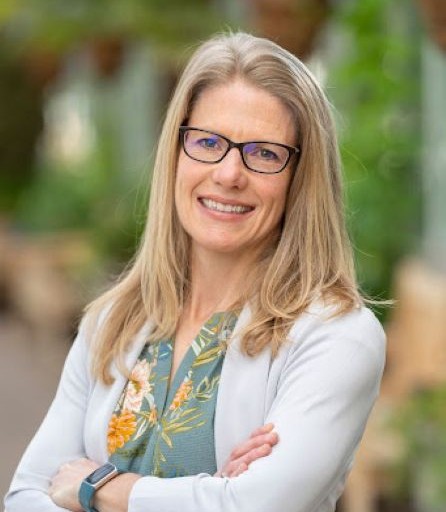
Jennifer Neale serves as the Director of Research and Conservation at Denver Botanic Gardens where she leads the team of scientists working to investigate and explain biodiversity patterns and processes. Working collaboratively, the team documents and conserves our natural heritage working towards a vision of a biodiverse world. Serving as the public face of the department, she participates in regional, national and international collaborative projects focused on biodiversity conservation. She serves on the Board of Directors for Botanic Gardens Conservation International – US. For the American Public Gardens Association, she has served in Community leadership roles as well as on the Program Selection Committee. Her research has focused on using molecular methods to address questions of conservation concern related to rare plants in Colorado.
A Colorado native, Jennifer attended Rhodes College in Memphis, Tennessee where she earned a Bachelor of Science in Biology. She completed a PhD at the University of Colorado Boulder where she studied conservation and restoration genetics as well as pollination of a federally protected species. She began her employment at Denver Botanic Gardens in January of 2007 where she has enjoyed her role as a science communicator within a cultural institution.
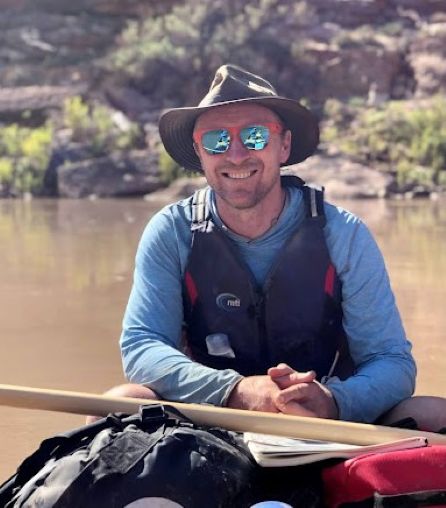
Alex Nees is a consulting biologist with 15 years of experience in the private and public sectors, focusing on development and resource management projects on federal lands in the Intermountain West. His background also includes employment with the Bureau of Land Management's Grand Junction Field Office and CDOT's Region 3 Environmental Team. He has extensive experience with multi-agency coordination for the design and approval of infrastructure projects, including both field biological assessments and environmental review for rail and road projects, energy infrastructure, water resources and dams, residential and industrial development, recreational facilities, and restoration projects. Alex's unifying interest is in guiding responsible public lands development in ways that are informed by science and that balance benefits to the human and natural communities. Alex grew up in Philadelphia, and holds a bachelor's degree in ecology from Princeton University and a master's degree in biology from Stanford University. He lives in Grand Junction with his wife and two children, and is proud to call the Western Slope home.
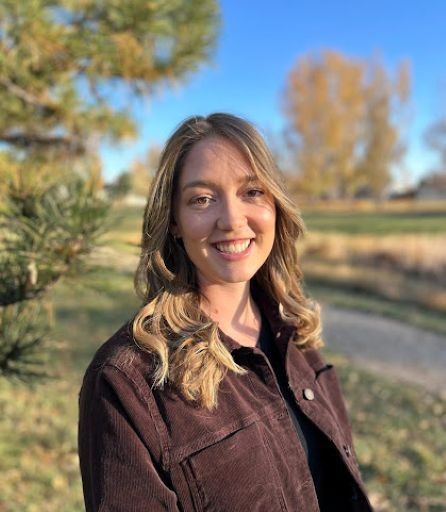
Savanna Smith is the Rare Plant Species Conservation Program Manager for Colorado Parks & Wildlife (CPW). She works to advance the conservation of our state's most imperiled rare plants through collaborative partnerships, technical research & monitoring, education & outreach, and voluntary conservation actions. Previously, she served as a botanist with the Colorado Natural Heritage Program where she supported the Colorado Natural Areas Program within CPW. She has extensive experience collecting data and conducting field surveys for Colorado's rare plants, and is passionate about helping others appreciate these critical pieces of Colorado's biodiversity. She holds a B.S. in Wildlife Biology from Colorado State University (CSU) and is completing the final requirements for her M.S. in Natural Resource Stewardship: Rangeland Ecology & Management from CSU.
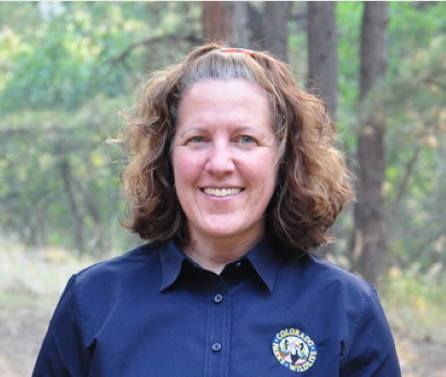
Dr. Karen Voltua is a wildlife biologist working for Colorado Parks and Wildlife (CPW) as the Statewide Energy Lead responsible for managing CPW’s renewable energy program and coordination with the Energy and Carbon and Energy Management Commission. Prior to her statewide role, Karen spent 8 years in southeastern Colorado coordinating with industry, federal and local agencies, and CPW biologists on energy development projects to assess impacts to wildlife and habitat. Karen’s work includes the evaluation of best management practices, cumulative impacts to wildlife, energy policy, and minimization and mitigation strategies. She serves as co-chair for the Association of Fish and Wildlife Agencies Wind-Wildlife Working Group and is the founding chair of the Western Association of Fish and Wildlife Agencies Wildlife and Energy Working Group.
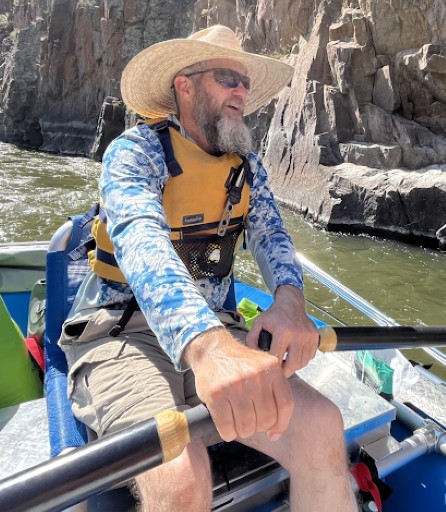 Bob Zuellig was born and raised in Missouri where he fell in love with the natural world at an early age by stomping around the creeks, rivers, and forests of the Ozarks. He moved to Colorado in 1991 for a temporary job but found it hard to leave. Eventually, he landed at Front Range Community College and then Colorado State University earning degrees in Fish Culture, Fishery Biology, Entomology, and Ecology. He has worked most of his career as a stream ecologist with the U.S. Geological Survey where he gained over 25 years’ experience working with aquatic invertebrates and fish in Colorado and beyond.
Bob Zuellig was born and raised in Missouri where he fell in love with the natural world at an early age by stomping around the creeks, rivers, and forests of the Ozarks. He moved to Colorado in 1991 for a temporary job but found it hard to leave. Eventually, he landed at Front Range Community College and then Colorado State University earning degrees in Fish Culture, Fishery Biology, Entomology, and Ecology. He has worked most of his career as a stream ecologist with the U.S. Geological Survey where he gained over 25 years’ experience working with aquatic invertebrates and fish in Colorado and beyond.
When not working, you will find him with family and friends, float fishing, rafting, backpacking, hunting, saw milling, skid steering, wood working, fiddling, square dancing, flat footing or square dance calling.